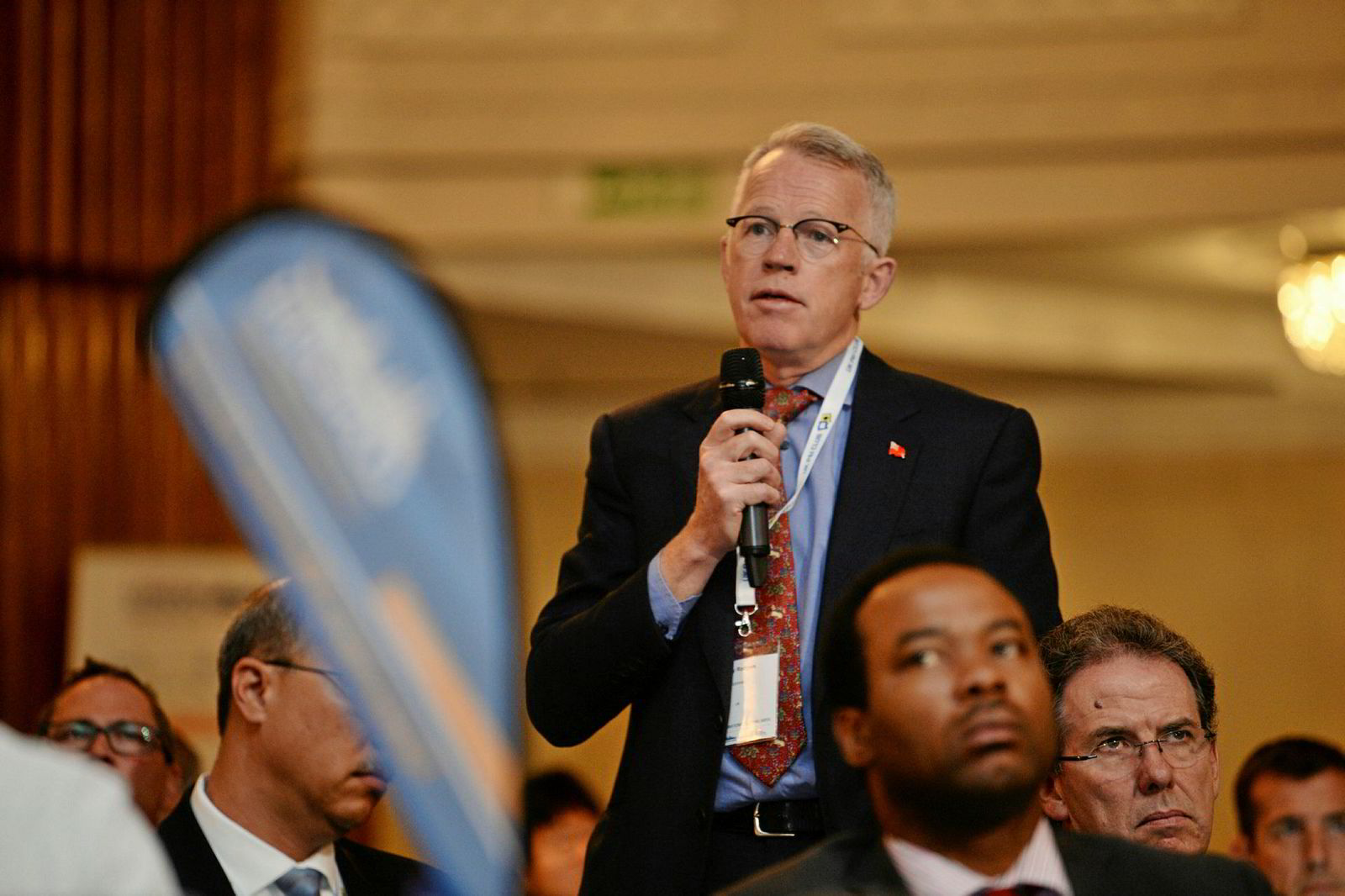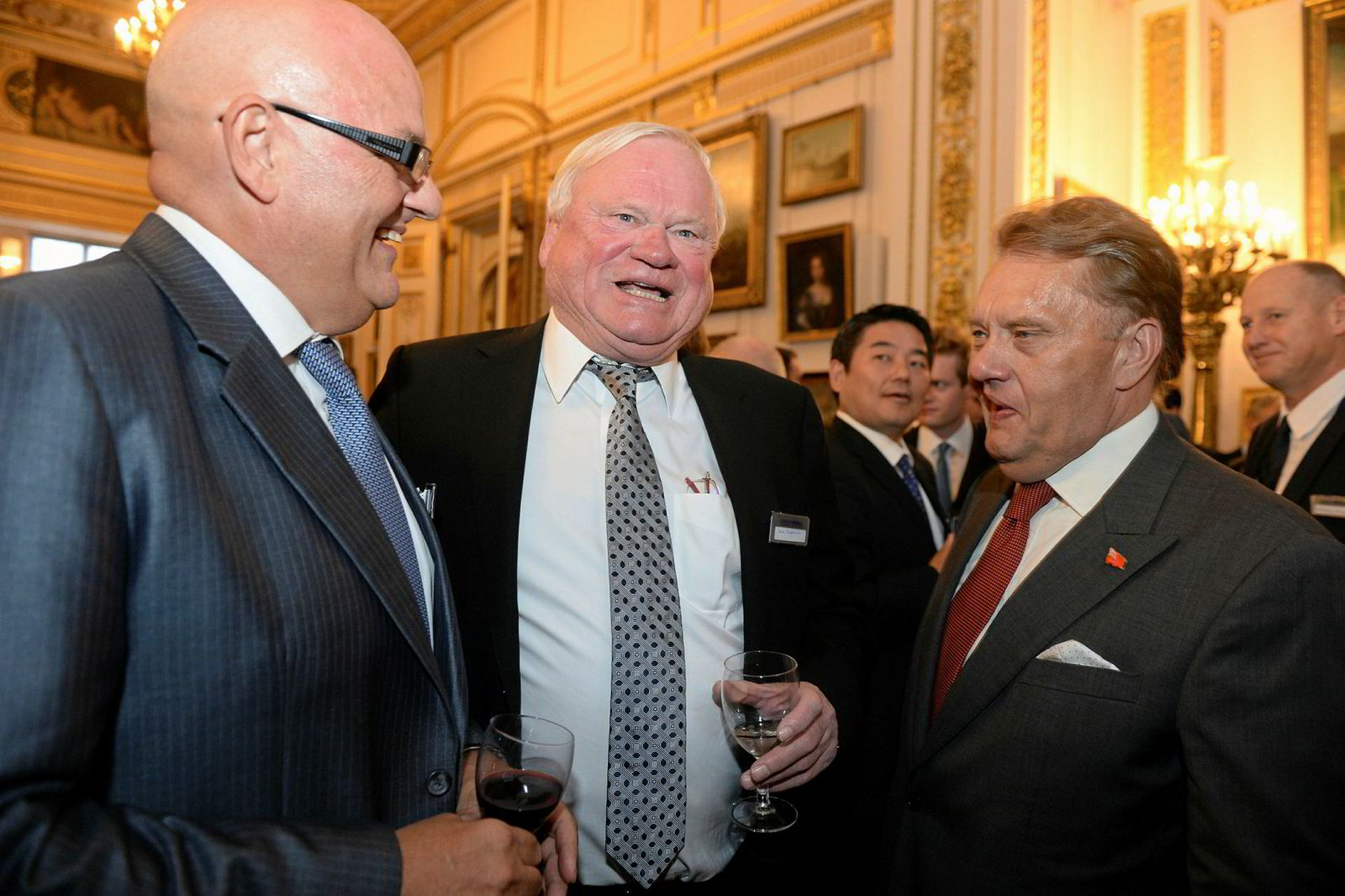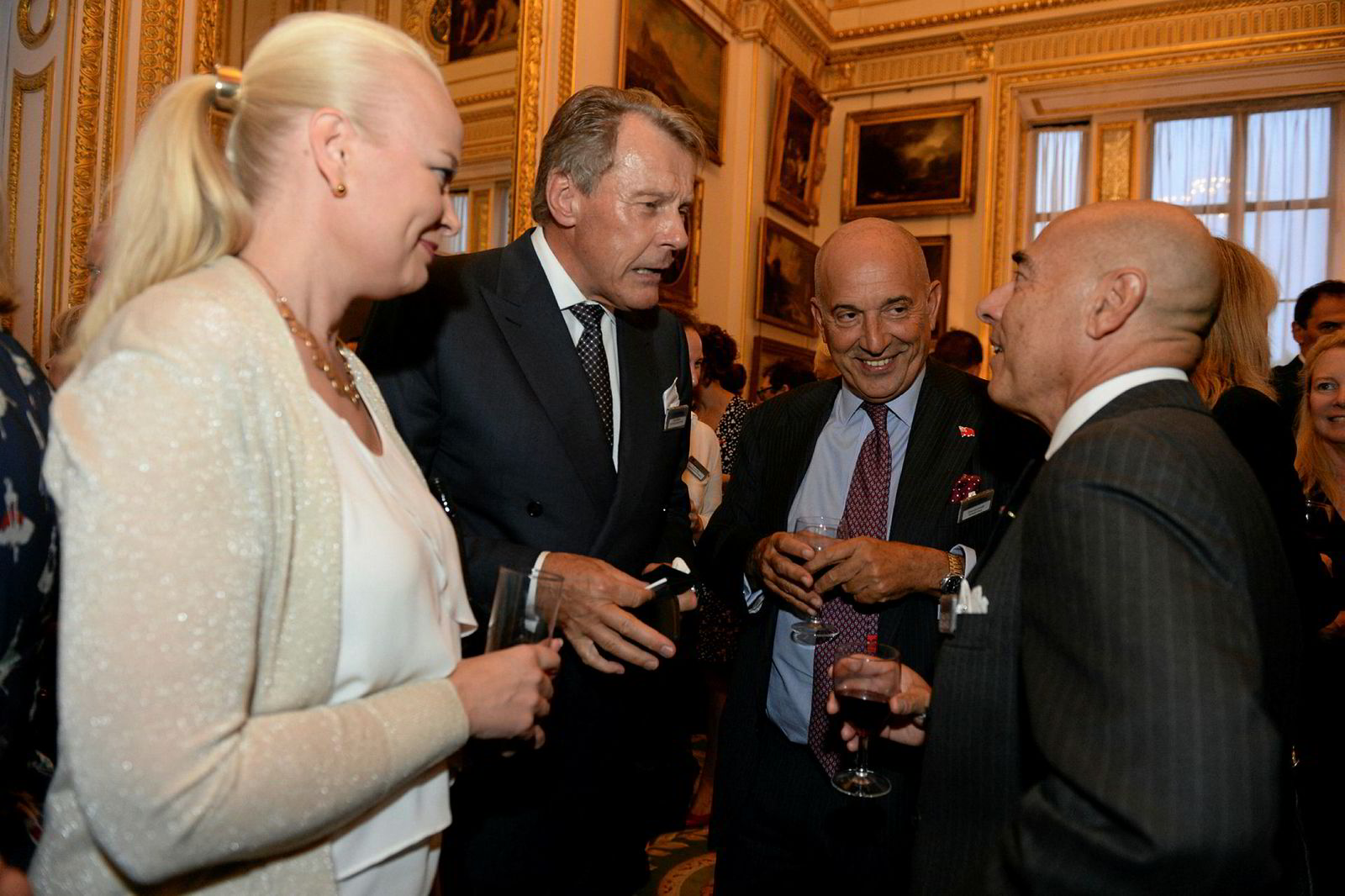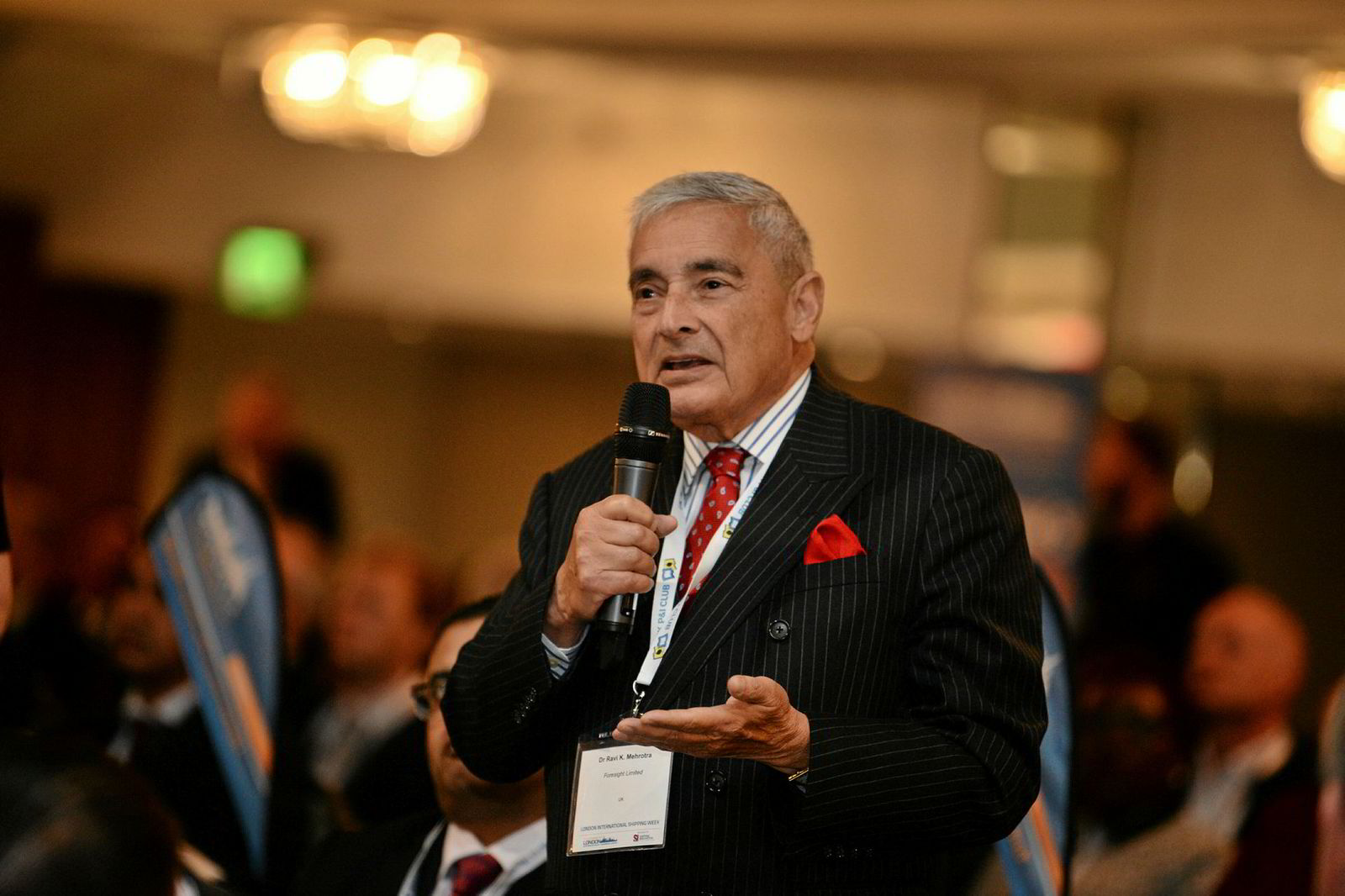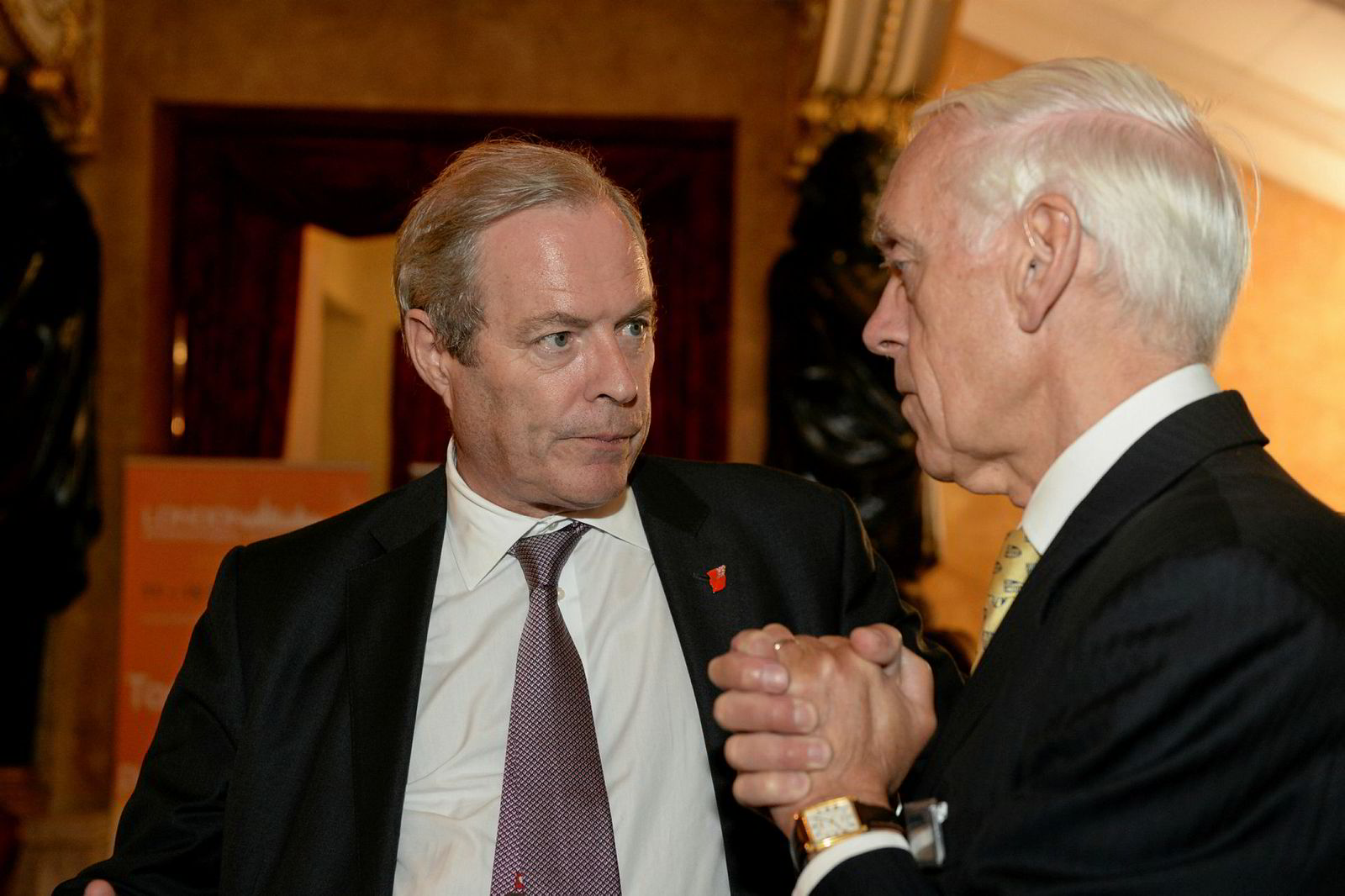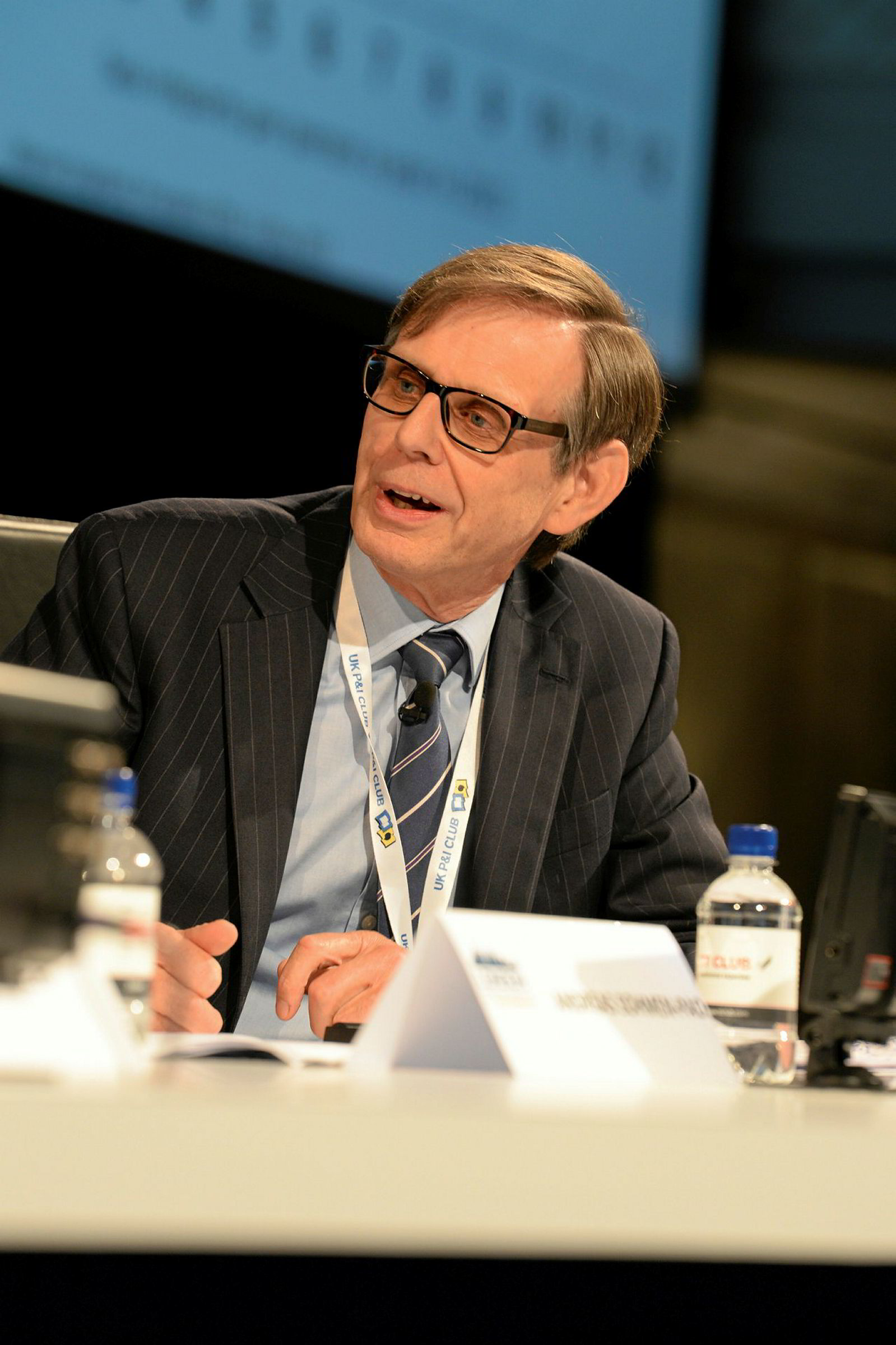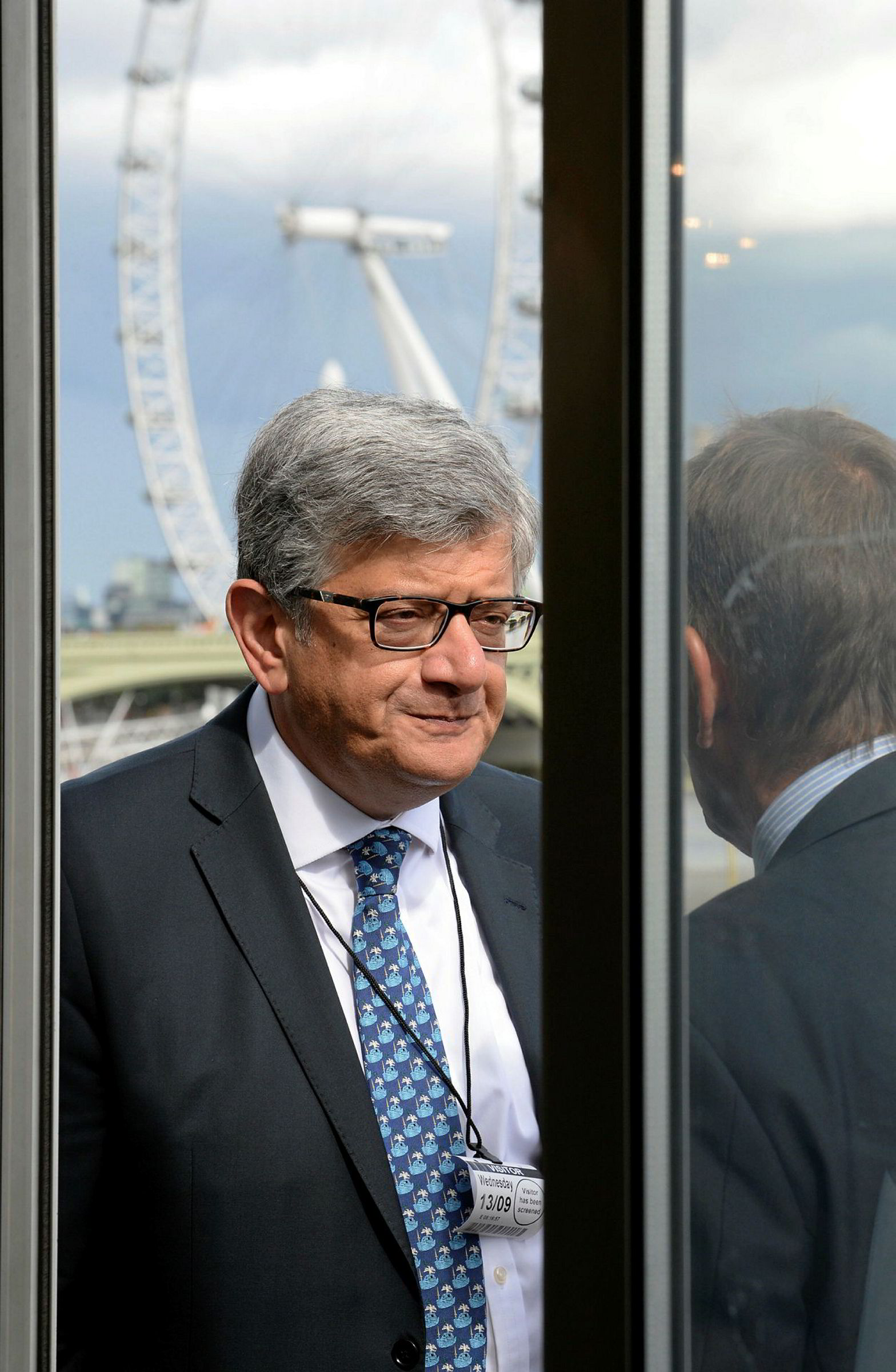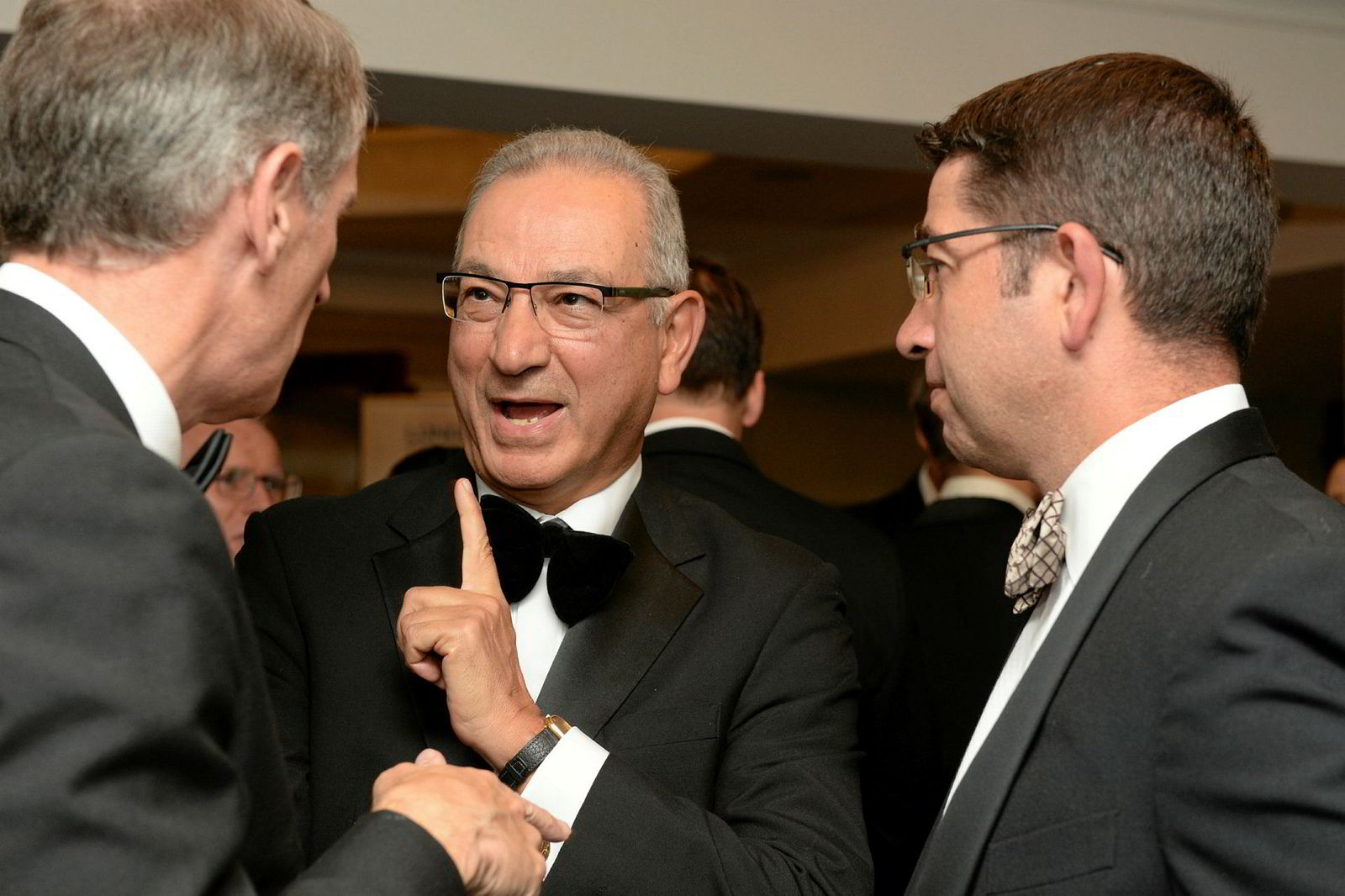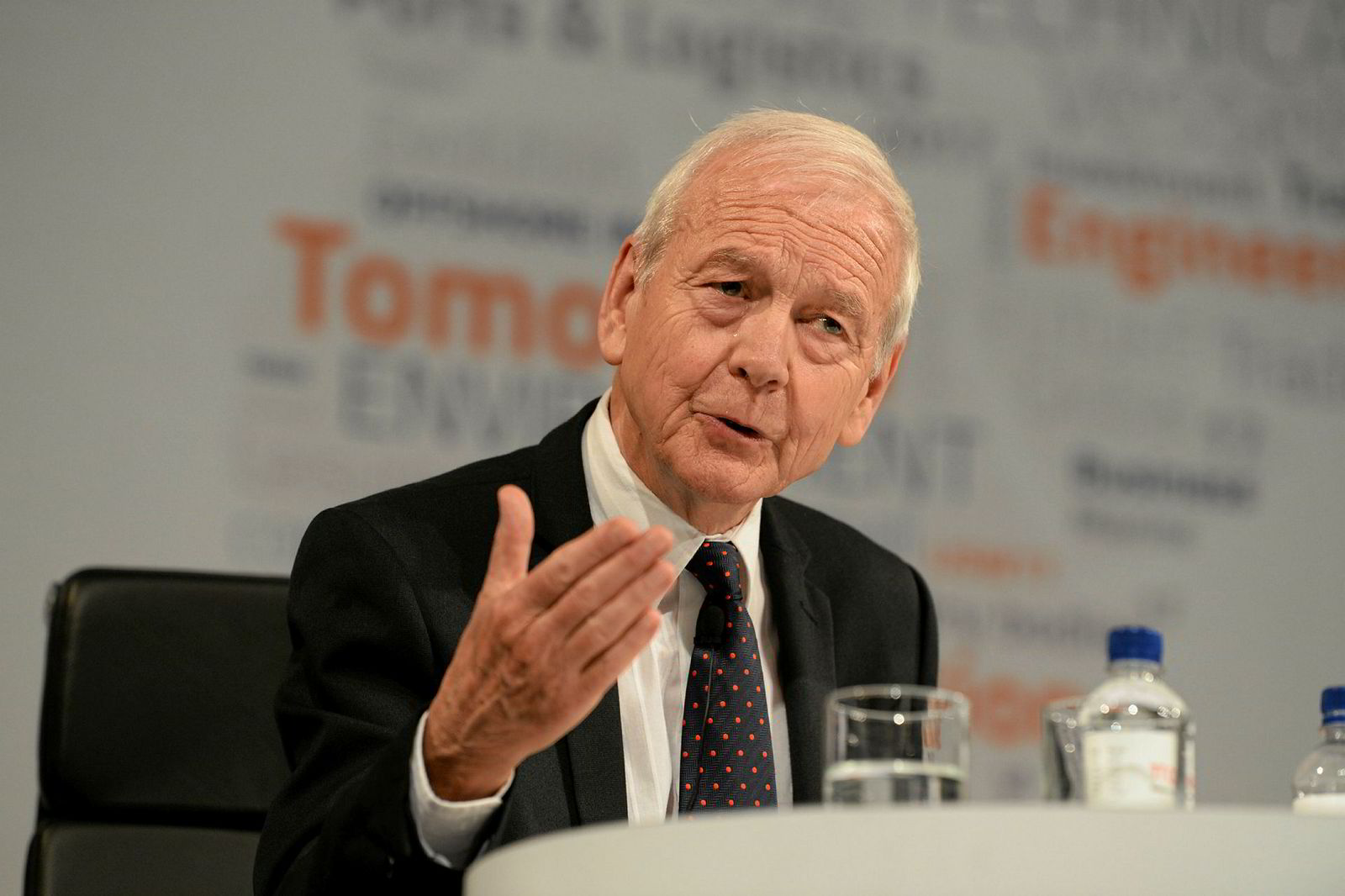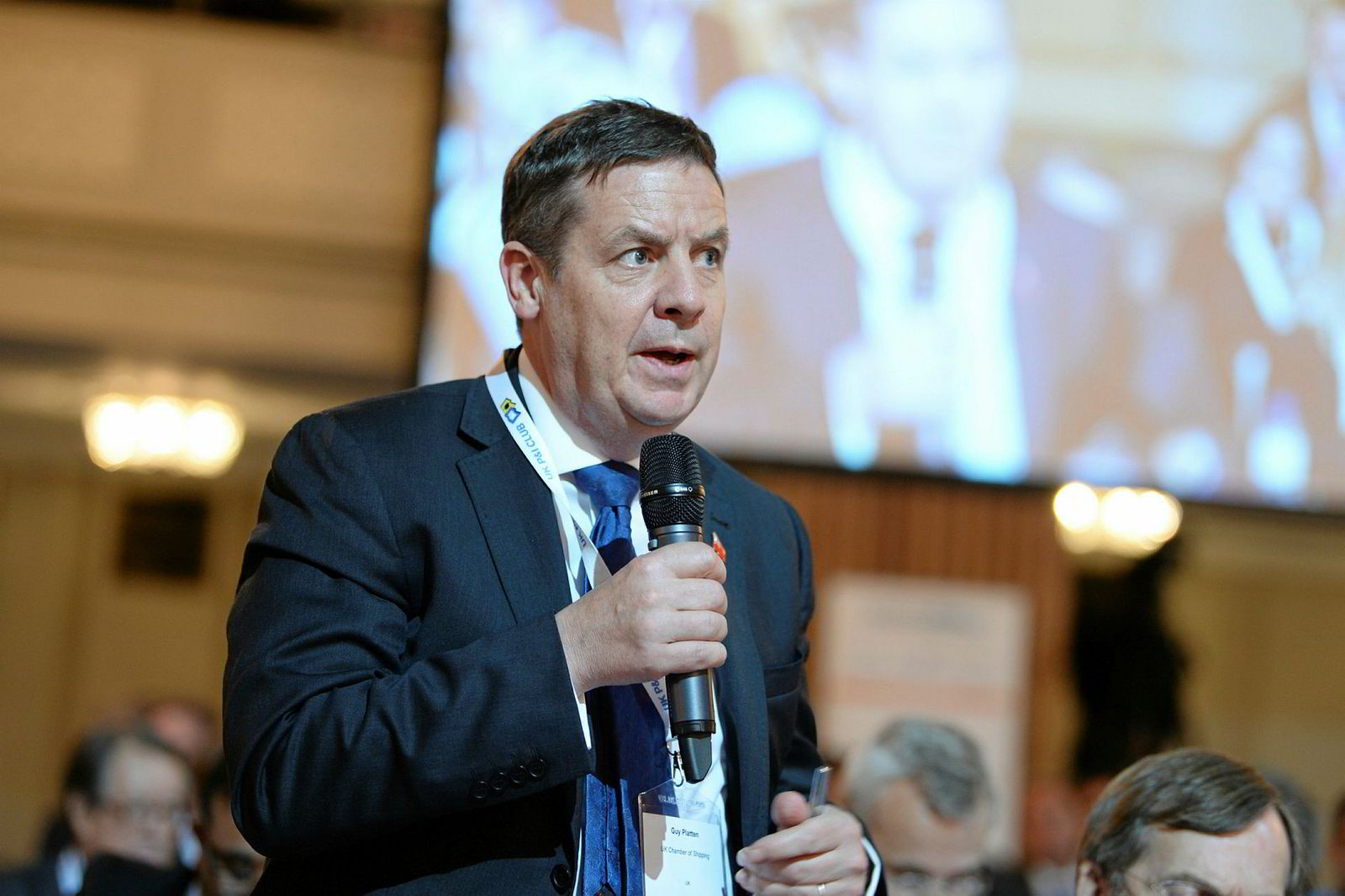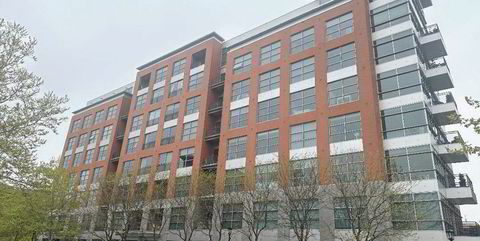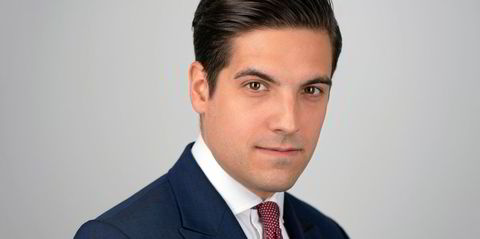When Andreas Sohmen-Pao and Martin Stopford were preparing for their starring roles at the London International Shipping Week conference, they were likely bracing for tricky questions from John Humphrys, the renowned BBC journalist hosting the event.
Instead, they found themselves on the receiving end of relatively friendly fire, with Euronav chief executive Paddy Rodgers seeking an answer for the perennial poser: How do you stop shipowners overbuilding their market?
“The problem for us remains the shipyards, [which are] essentially government subsidised,” Rodgers said after taking the microphone in the audience at the Grosvenor Hotel.
“Government subsidy comes from the support of central banks and those banks essentially give support to shipyards through one weapon — which really is a weapon of capital destruction because it links together the speculative investment – and that is the refund guarantee.
“Is there any chance there could be some sort of international regulation that gets rid of the refund guarantee, so that every shipowner who goes to order a ship has to look at the likelihood that the shipyard would not go bankrupt, check its balance sheet and then really put their money at risk when they ordered?” he asked.
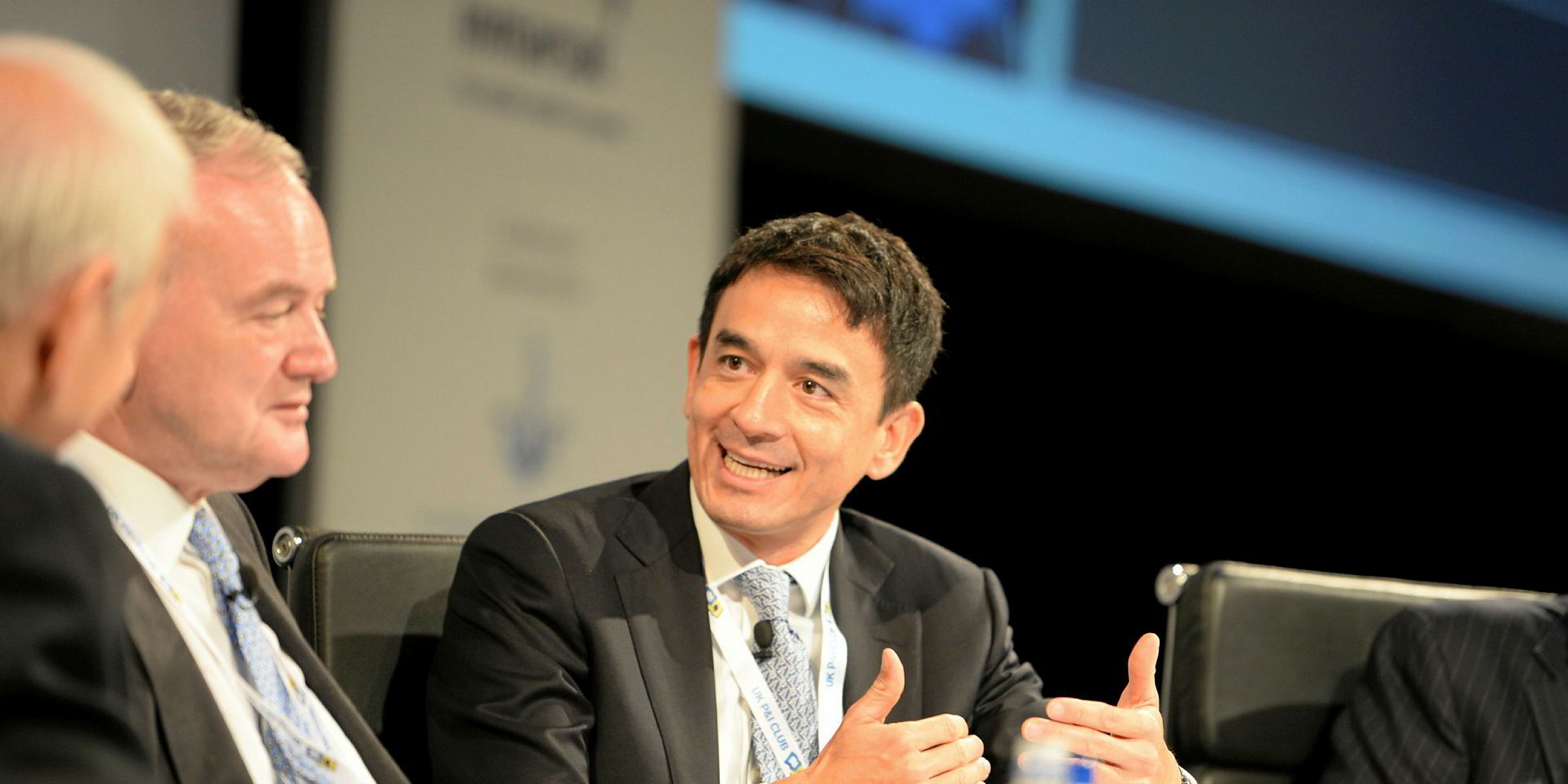
“At the moment, it’s a speculative free ride. Either the ship gets built in which case you take your risk in the market, or alternatively you get your money back.”
Stopford, the non-executive president of Clarksons Research, recalled that historically an owner needed a time charter before a bank would back a newbuilding project. That practice disappeared with the major investment cycle of the 1970s after lenders decided the vessel was sufficient collateral.
Stopford’s solution to the over-ordering dilemma was to get the cargo owners more involved. “If you are going to put hundreds of millions into tankers, you should try to link that in some structural sense to a real expectation,” he reasoned.
Sohmen-Pao, chairman of Singapore-headquartered BW Group, said: “It’s a wish that I deeply have that banks are more careful, shipyards are more careful, owners are more careful — but in reality it’s very hard to make that happen.
“I guess you could ask – we have been investing in new ships recently — ‘Andreas, if you are so balanced, why are you ordering ships?’ And I would say: ‘The rational argument, coming back to the free market, we buy ships because we see they are cheap in a historic context and hope — which is not a great strategy — you hope the market comes back’."
“The cynics would say, ‘You do it as a type of addiction and you lack imagination. You are in shipping and all you know what to do is go and order new ships. It’s like a drug you have got to order more ships'."

Sohmen-Pao said that in reality BW Group saw pockets of growth and was investing at below its rate of depreciation. “The ships are rusting and getting older and if you don’t reinvest to some extent, you end up disappearing," he said.
“So we don’t try to go way above rate of depreciation. We are also looking at new areas. We are investing in oil and gas fields now and doing other things to try, and being a bit imaginative and branching out from our core business.”
Sohmen-Pao said governments were unlikely to ever stop the contracting of ships, but he believes there was some hope they could avoid actively encouraging and incentivise excess capacity.
“We have seen in countries like China, where this has led to problems in steel, in cement, in shipping, because this underwriting of expansion without economic basis that I think is dangerous.”
Stopford concluded the debate, noting the shipbuilding nations were non-OECD countries. “One hundred years ago, we built 70% of the world’s ships here in the UK and now it’s their turn,” he said.
